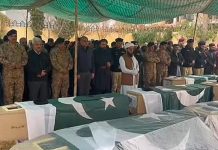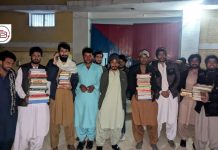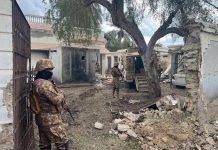Author: Azhar Baloch
The COVID-19 pandemic has affected educational systems worldwide, leading to the near-total closures of schools, universities and colleges.
So far, approximately 1.725 billion learners are currently affected due to school closures in response to the pandemic. According to UNICEF monitoring, 158 countries are currently implementing nationwide closures and 33 are implementing local closures, impacting about 98.5 percent of the world’s student population.
Furthermore, with the spread of COVID-19 in Pakistan, educational institutions across the country were promptly ordered to suspend their regular academic activities keeping in view the safety of the students. In addition, as the country enters nearly a month of a partial to complete lockdown and total suspension of educational institutions, it faces an unprecedented challenge to cope with re-adjusting its academic year.
In Pakistan, the number of affected learners or students stands at 46,803,407 reported figures. In a further breakdown of the number of students affected at pre-primary level are 8,636,3.83, at secondary of 13,357,618 and at tertiary level of about 1,878,101.
In response to school closures, UNESCO recommended the use of distance learning programmes and open educational applications and platforms that schools and teachers can use to reach learners remotely and limit the disruption of education.
Although schools and colleges have been asked to promote all students to the next grades and not to fail the students; this too is a temporary fix to a problem that is bound to disturb the entire academic calendar, yet the only decent compensation.
Higher Education Commission (HEC) of Pakistan directed all universities and accredited institutions in the country to start online classes to avoid education loss to the students staying at home due to the COVID-19 spread.
But Students who do not have access to the internet facilities to take online classes cannot avoid this educational loss.
Internet services in the remote areas of Balochistan, like Kech and Awaran, have been suspended for the past three years due to security concerns. Northern areas are unable to receive internet broadband signals because the geography and topography of the region makes it impossible to set up signal boosting infrastructures. There is no internet facility in the tribal and rural areas of Dera Ghazi Khan and Rajanpur.
It is not Possible for student in these areas to take online classes as they will have to travel miles to the cities to access the Internet and most of the students are financially weak and cannot afford hostelling and internet expenses.
On the other hand, due to the lockdown, students are not able to travel so that they can reach the cities with internet. For example, the students of Awaran have to come to Quetta for internet. And it takes two days for a tribal student from Dera Ghazi Khan to come down from the mountains to the city due to lack of roads and transport. It is also not safe to travel in these conditions.
In addition to the Internet, many students also face other problems such as financial difficulties, lack of laptops, housing in other cities, unfamiliarity with the online system, etc.
Taking online classes from students in these situations is tantamount to toying with their future.
The HEC should review the feasibility report before importing this policy to see how many students can afford online classes. All students should be provided with internet and basic facilities before starting online classes and if Internet availability to all students is not possible, HEC should consider another option for all Students on equality basis.
Disclaimer: The views and opinions expressed in this article are those of the author and do not necessarily reflect the official policy or position of The Balochistan Post or any of its editors.






























